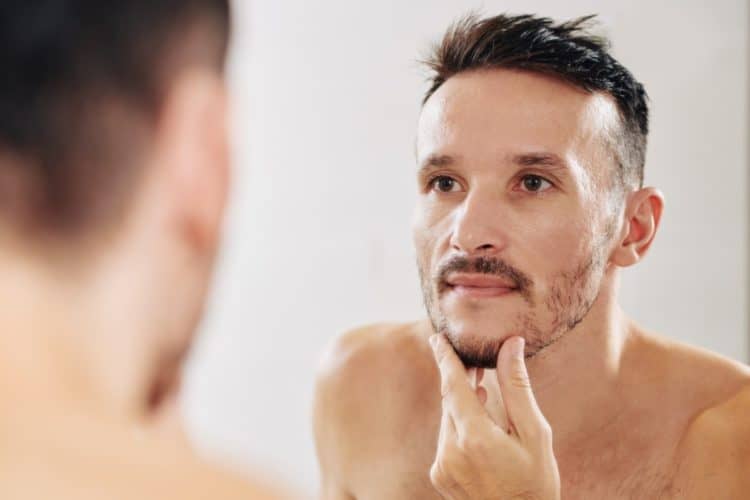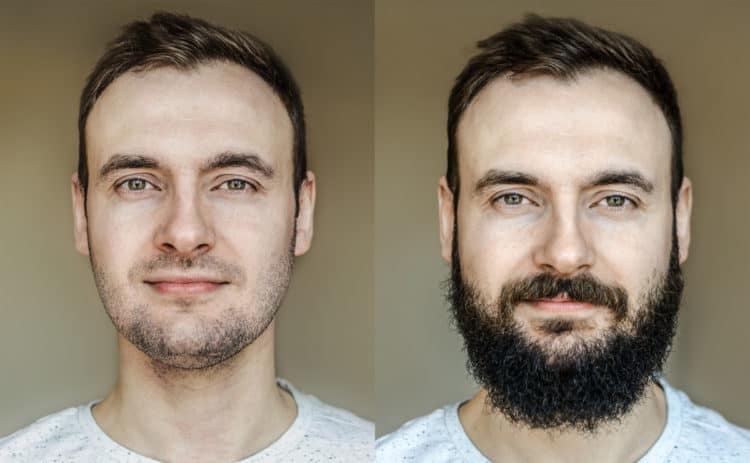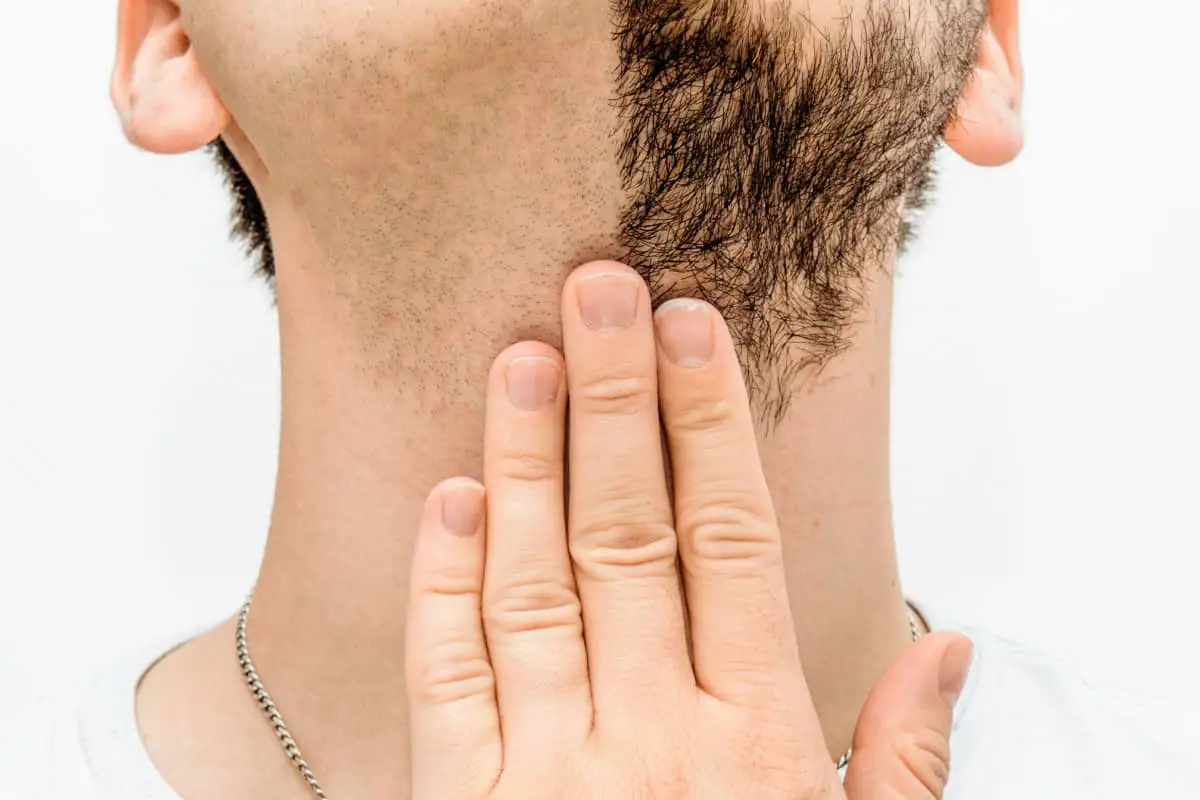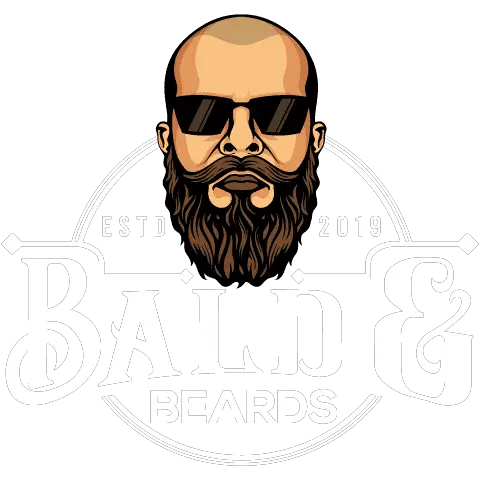Sometimes, beard growth is just downright frustrating, but doesn’t have to be. Beards are unique to the person, so even if you have trouble growing facial hair, there’s hope for you.
Slow beard growth is attributed to genetics, age, ethnicity, and alopecia areata. You may be able to stimulate hair growth with certain products, such as minoxidil for beards or even a beard derma roller.
We’ll explore all the different reasons beards grow in slowly and give better tips how to speed up hair growth, including methods proven successful for men with alopecia areata. So, it’s likely you can stimulate facial hair growth – keep reading.
Reasons You Can’t Grow a Beard
Contrary to belief, masculinity, virility or levels of testosterone have less to do with the ability to grow a beard. Genetics, age, and certain medical conditions are the primary contributors to the lack of beard growth.
In this guide, we look at the many reasons for slow beard growth, including those you can’t help, such as genetics or age. Plus provide guidance and top resources. Check out: How Long Does it Take to Grow a Beard?

If you’re reading this and you haven’t passed your mid-20s, you could just be dealing with juvenile facial hair growth and teen beard problems.. Otherwise, consult with your doctor to see why you can’t grow a beard.
1. Genetics
Genetics is the primary reason so many men can’t grow a beard until their late 20s or even 30s. Others have lifelong issues with patchy beards because it runs in their families.
If you think about the men in your family, have you ever noticed if your father or grandfather has thicker hair or maybe thin in the beard area? If thin, then your hair genetics are most likely responsible for your lack of growth.
Thick, long beards are attributed to the number of androgen receptors, which are a group of hormones that define masculine characteristics for men, such as facial hair growth or even the pitch of your voice.
2. DHT
Other reasons could be that your body is producing an androgen hormone testosterone known as dihydrotestosterone (DHT). This hormone is long thought to be responsible for overall hair loss and male pattern baldness.
When this hormone attaches to your follicles, it can shrink and weaken beard hair. The result is a thin beard, possibly with bald or patchy spots.
A doctor can perform a DHT blood test to see if that’s the issue, which could be beneficial if you’re also losing hair or experiencing a receding hairline.
3. Ethnicity
Just like genetics, there are some traits that pass down from generation to generation based on your ethnicity. For example, Mediterranean men can grow incredibly thick beards.
A study from 2016 studied Chinese men and found that they have less facial hair growth than men who were Caucasian. In addition, Chinese patients in the study could grow hair easily around the mouth, while Caucasian counterparts were able to grow hair on the chin, neck, and cheeks.
The same study also found that the diameter of human hair can be as small as 17 micrometers to as thick as 180 micrometers, which explains why some beards are thicker than others and look fuller. However, they may not be able to grow more hair, it’s just that their hair strands are thicker.
4. Age
Age is an enormous factor in determining why your hair growth is so slow. It’s well known that teenage men have difficulty growing thicker beards.

Men don’t experience thicker beard growth until the late 20s and early 30s in most cases. Beards tend to get thicker with age, simply because of puberty stages. Need more insights? We created a teenage beard growth guide just for this reason.
5. Low Testosterone Levels
In other cases, it’s a medical problem related to your testosterone levels. Men with low levels of testosterone generally don’t have as much facial hair as those with an abundant amount of testosterone in their system.
However, there are more symptoms that you’ll notice if you have low testosterone. These include:
- Erectile dysfunction
- Low libido
- Irritability and mood swings
- Increased body fat
- Difficult to build muscle
- Fatigue/exhaustion
For those who believe that testosterone is the problem, it’s imperative that you check this with a doctor and get tested to see if you qualify for testosterone treatments.
6. Alopecia Areata
With alopecia areata, men and women experience hair loss due to the body attacking its own hair follicles. This can cause hair loss on your head and face.
Currently, there isn’t a cure for alopecia areata, but there are some methods that have proven results for hair growth. These include:
- Minoxidil or Rogaine
- Dithranol or Dritho-Scalp
- Steroid injections
- Corticosteroid creams
- Topical immunotherapy
- Cortisone tablets
- Phototherapy
- Oral immunosuppressants
Methods for Growing a Beard Faster
We recommend trying a variety of different methods to grow a beard faster, including a healthy diet, using a microneedle derma roller (beard roller) or even trying biotin or other beard supplements. Many have reported these methods were beneficial for facial hair growth.
Treatments and growth products don’t always work for everyone. You’ll find all kinds of promises online about beard growth supplements, beard oils, and other products that promise to grow your beard overnight.
Read the reviews and go is with a product that offers a money-back guarantee, so you can try it and see if it works for your situation.

See our Patchy Beard Style Guide
If you have a medical condition, then changes to your lifestyle may not be enough. So, if you’ve been diagnosed with a condition like alopecia areata, then you’d be better served by seeking medical treatments, rather than over-the-counter methods.
Addition beard growth resources:
- Beard Growth Stages: Get the Basics of Beard Growth
- 7 Best Beard Fillers: How They Work + Barber Tips
- Top 5 Beard Growth Kits for a Full, Thick & Healthy Beard
- Top 10 Best Foods for Insane Beard Growth
- Rogaine (Minoxidil) for Beard Growth | Best Results [Guide]
- Beard Growth Vitamins: Grow a Full & Healthy Beard


